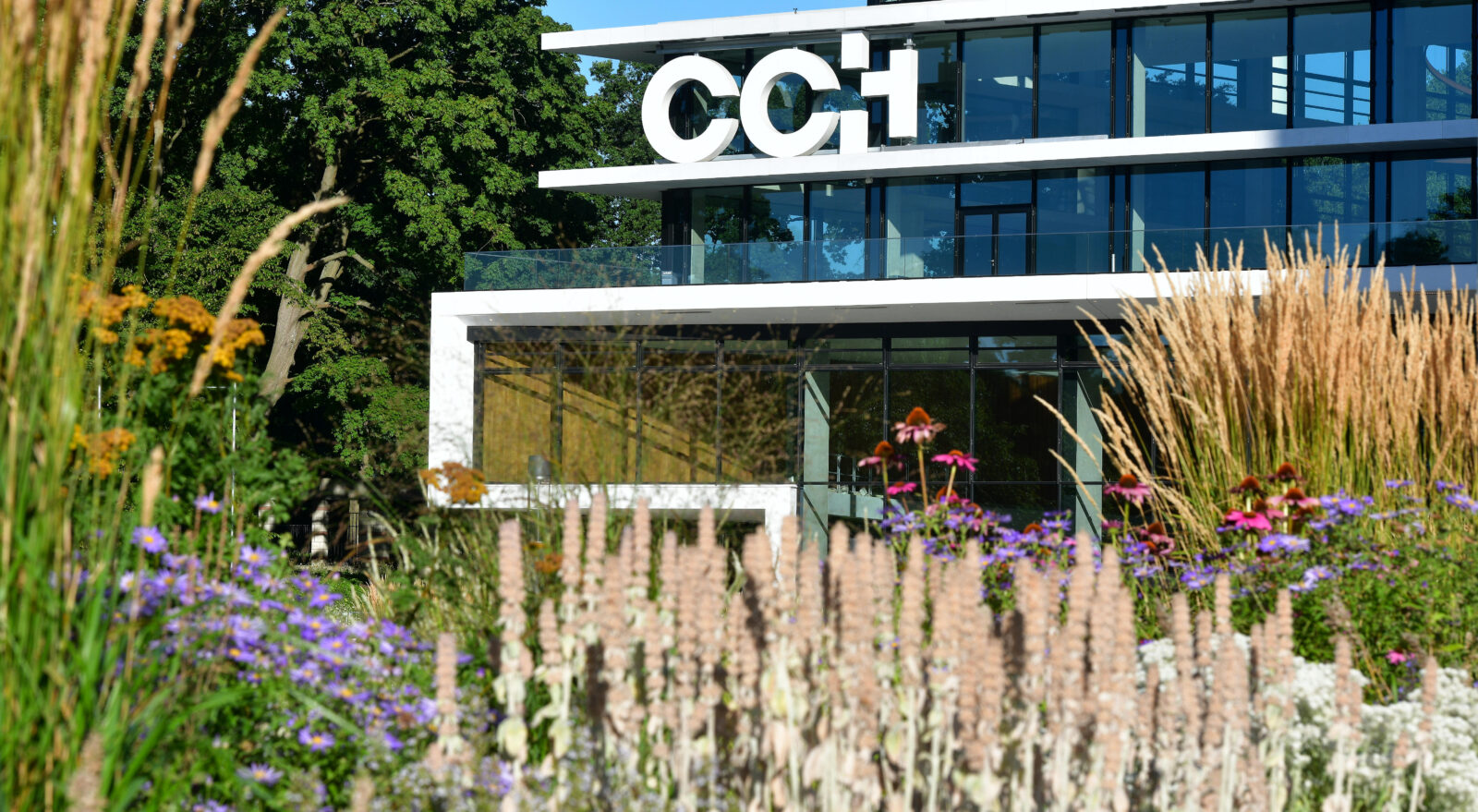Centrally situated in Hamburg, with 36,000 square meters of available space and up to 50 multifunctional halls spread across its four levels, CCH – Congress Center Hamburg is also one of Europe’s largest conference centres.
Originally built in 1973, the newly renovated complex underwent a modernization and redesign project piloted by the architectural cooperative AGN Leusmann / Time Hupe Architekten. The decision to preserve and update the existing structures, rather than replace it with a completely new building, saved approximately 25,000 tons of CO2 emissions.
“The CCH uniquely combines the concept of ecological, technical and social sustainability with daring artistic vision,” emphasizes Heike Mahmoud, Chief Operating Officer of the CCH. “The City of Hamburg’s farsighted planning regarding the sustainability of the CCH has become a key element of our customer acquisition strategy.”
At the forefront of sustainable development
Germany has long been at the forefront of sustainable development initiatives, across multiple domains, building construction being not least among them. For more than three decades the German Passivhaus (Passive House) design process has been internationally adopted and accepted as the gold standard for achieving energy efficiency in construction projects. In this landscape it is unsurprising that the German Sustainable Building Council (DGNB) has what are perhaps the world’s most ambitious objectives and standards when it comes to minimizing a building’s ecological footprint. The DGNB certification system saw its first market application in 2009. Since then it has evolved and has come to be considered as a global benchmark for sustainability.
Indeed, the criteria that needed to be met for CCH – Congress Center Hamburg to obtain the DGNB’s prestigious Gold certification in Revitalization were so stringent that to date it is the only conference centre to have qualified for this prestigious accolade, earning an overall compliance score of 76.7 percent. This recognition further cements CCH’s reputation as one of Europe’s most modern convention centres, while redefining standards of sustainability for the conference industry, both in Germany and globally.
“From the very beginning, the sustainability topic was part of the considerations for the revitalization of the CCH,” said State Secretary Andreas Rieckhof, Ministry of Economy and Innovation. “Sustainability goals were incorporated in the design competition and included in the evaluation of the entries as quantified criteria.”
Preference was given to eco-friendly and healthy building materials. “For the purposes of DGNB certification, 837 construction products were inspected and tested for suitability,” said CCH auditor Jan Zak. 85 percent of the wood products used in remodelling the CCH was sourced from sustainable forestry. The modernized portions of the building exceed statutory energy efficiency requirements by around 20 percent, with newly-built parts surpassing them by approximately 30 percent.
The CCH also boasts high-efficiency dazzle-free LED lighting in the halls, meeting rooms and the foyer, that aims to follow the rhythm of natural daylight.
“The horizontal ‘brise soleil’ sun breakers create a pleasant daylight mood, but also protect against direct sunlight, producing a natural shading effect,” says architect Tim Hupe. “Thanks to the smart control of the façade openings, it was possible to avoid installing an energy-intensive air conditioning system.”
Ecological footprint
The ecological footprint was further reduced by enhancing the local microclimate and increasing biodiversity with the addition of 2,000 square meters of rooftop garden area above Hall 1. An extensive redesign of the area surrounding CCH includes an additional two hectares of green space – now the Marseiller Promenade and close integration with the Planten un Blomen (Plant and Flower) Park, making the surroundings of CCH a pleasant and relaxing place to be.
Accessibility was another key consideration, with the new CCH meeting stringent requirements for barrier-free access by implementing features such as audio induction loops, tactile guidance systems, and visual alert systems. Meanwhile Congressplatz square has been optimized for cyclists, with dedicated bicycle parking stands, with upgrading work here and on the Dag-Hammerskjoeld-Platz giving CCH and its users direct and barrier-free access to the Dammtor train station, while its central location makes it easily accessible by all forms of public transport.
The remodelling of CCH is a unique combination of ecological, technical and social sustainability, setting an example for the global conference industry of the future.
